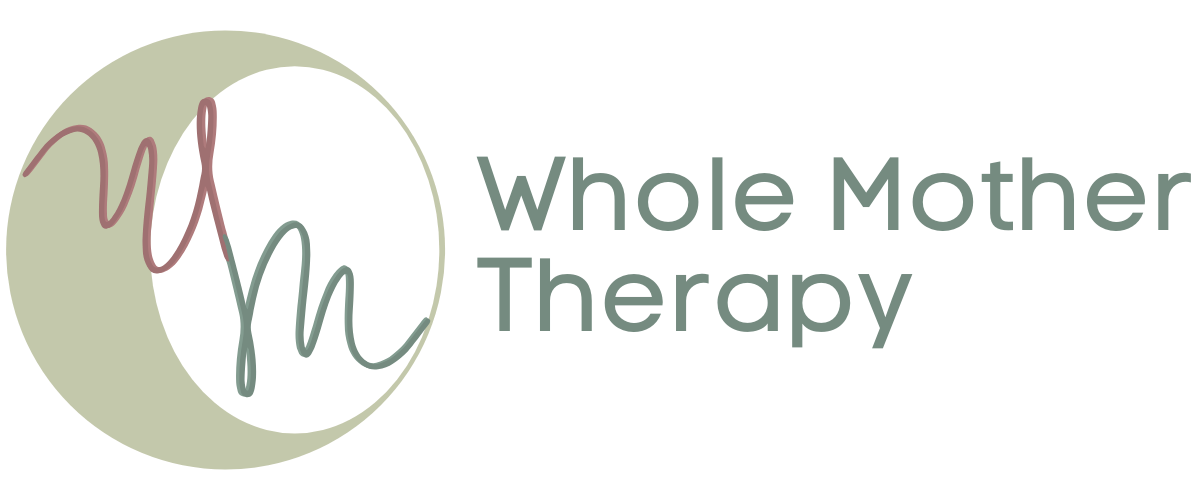Perinatal and Mood Disorders Series Part 1
Welcome to the PMAD series! In this series, we will be discussing postpartum mood disorders. We will start with an introduction to mood disorders and what you need to know. It is important to have a general understanding of PMADs before we discuss specific details about each type. In future posts, we will go into more depth about the different types of PMADs and how to best recover from them.
What is PMAD?
PMAD stands for perinatal mood and anxiety disorder. PMAD is a general term used to describe any type of mood disorder that can occur during pregnancy or in the postpartum period. PMADs can range from mild to severe, and they can affect any woman, regardless of her mental health history. You may be most familiar with baby blues or postpartum depression, however, there are many more mood and anxiety disorders that can arise.
Symptoms of Perinatal Mood and Anxiety Disorder in BIPOC Populations
It’s important to note that PMAD can look different for different people, especially for those in minority groups. Black and Indigenous women, as well as women of color, may experience unique symptoms due to the added stressors of systemic racism and oppression. Some of these unique symptoms include:
- Feeling numb or disconnected from your baby
- Feeling like you’re not a good mother
- Having intrusive thoughts about harming yourself or your baby
- Having difficulty bonding with your baby
- feeling hopeless, helpless, or worthless
Symptoms of PMAD in Dads and Partners
It’s not just moms who can experience PMAD. Dads and partners can also suffer from postpartum mood disorders. In fact, one in ten fathers will experience symptoms of depression during the first year after their child is born. Symptoms in dads and partners may include:
- Feeling angry, irritable, or short-tempered
- Withdrawing from friends and family
- Feeling hopeless or helpless
- Having trouble sleeping
- Suffering from anxiety or panic attacks
- Experiencing intrusive thoughts or images
Symptoms of PMADS in Non-Binary Individuals
PMAD can also affect those who don’t identify as either male or female. The symptoms may be similar to those experienced by dads and partners, but they can also include:
- Feeling disconnected from your baby
- Feeling like you’re not a good parent
- Having difficulty bonding with your baby
- feeling hopeless
It is important to look out for these things as they arise before, during, and after the pregnancy and postpartum period as they can affect relationships, bonding, and more.
Types of PMADS to Be Aware of:
Postpartum Anxiety
This is categorized by feeling excessively worried or panicked about everything related to the baby. This can be from pure exhaustion and lack of sleep or it could be a more serious anxiety disorder.
Postpartum Depression
This is the most common PMAD, affecting around 15% of new mothers. It includes all the symptoms of clinical depression plus some specific to postpartum. These include: feeling disconnected from the baby, intrusive thoughts about harming self or baby, and more.
Postpartum Obsessive-Compulsive Disorder
This PMAD is characterized by intrusive, unwanted thoughts (obsessions) about the baby that lead to compulsions (repetitive behaviors) to ease the anxiety caused by the obsessions.
Postpartum Post-Traumatic Stress Disorder
This PMAD can occur after a traumatic birth experience. It is characterized by flashbacks, intrusive thoughts, nightmares, and avoidance of anything related to the birth.
Postpartum Bipolar Disorder
This PMAD is characterized by extreme highs (mania) and lows (depression) that can occur during pregnancy or postpartum. It is important to seek professional help if you think you may be
Postpartum Rage
This PMAD is characterized by uncontrolled outbursts of anger. These can be verbal or physical and can be directed at anyone, including the baby.
Psychosis
This PMAD is characterized by a break from reality. This can include hallucinations, delusions, and paranoia. This is similar to postpartum OCD but has more severe symptoms over a prolonged period of time.
What do BIPOC, Non-Binary, and other parents need to know?
If you’re a Black, Indigenous, or person of color (BIPOC), the added stressors of systemic racism and oppression can make PMAD symptoms worse. And if you’re non-binary, you may experience PMAD symptoms that differ from those experienced by dads and partners.
It’s important to be aware of the symptoms of PMAD and to seek help if you’re experiencing them. Many resources are available to help you recover from PMAD, including therapy, medication, and support groups. You don’t have to suffer in silence – help is available.
If you think you may be suffering from PMAD, reach out to Whole Mother Therapy for culturally competent and aware therapy support. Keep following this series to learn more about treatments, medication, and coping skills.
If you are ready to take the first step on your journey to healing, please get in touch with us today.
OTHER SERVICES WHOLE MOTHER THERAPY OFFERS:
We offer services that are tailored to fit the needs of each client. The lives of each person are unique and are shaped by a variety of experiences. As a result, our Pasadena office has therapists who offer a wide range of mental health services at our Pasadena office, we provide individual therapy for new parents, postpartum anxiety treatment, birth trauma, postpartum depression support, marriage counseling, and couples therapy for new parents, and virtual therapy. Additionally, we offer support groups.



